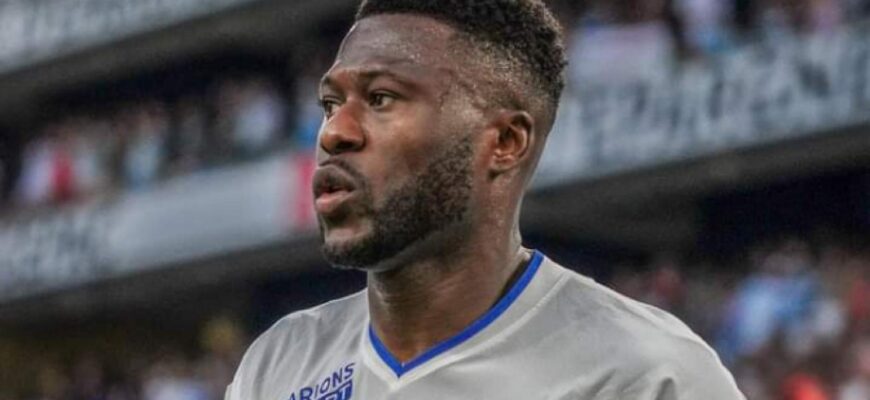From captain to outcast, the story of Chancel Mbemba`s departure from Olympique Marseille is more than just a transfer; it`s a stark illustration of the complex, often contentious, relationship between football clubs and their players.
The recent debut of Congolese international Chancel Mbemba for Lille OSC might seem like a fresh start for a seasoned defender. Yet, this new chapter arrives with the lingering echoes of a bitter dispute that has cast a long shadow over his previous tenure at Olympique Marseille. What began as a seemingly routine end to the 2023/24 season for Mbemba, even donning the captain`s armband in his final game, quickly devolved into a public and now, legal, saga.
The “Loft” Treatment: A Club`s Tactic or a Player`s Purgatory?
Modern football, for all its glamour and financial prowess, harbors certain practices that raise eyebrows. One such method, often dubbed the “loft” or “blacklist,” involves isolating players a club wishes to offload, effectively sidelining them from first-team activities in an attempt to compel their departure. This was precisely the fate Mbemba reportedly faced at Marseille. Despite being under contract until 2025, the club sought to orchestrate a squad overhaul, and Mbemba found himself squarely in their crosshairs.
Imagine, if you will, being a professional athlete, at the peak of your physical and tactical acumen, only to be excluded from team training, video sessions, and matchday squads. For a player like Mbemba, who had been a regular starter and even a captain, this abrupt shift was not merely an inconvenience; it was, by all accounts, a profound professional affront.
Allegations of Moral Harassment and Dubious Intermediaries
The situation escalated beyond mere exclusion. Mbemba`s journey through this club-imposed purgatory was reportedly fraught with disagreements, including a publicized conflict with Ali Zarrak and even a three-week wage deduction – a decision later overruled by the league`s legal committee, highlighting the questionable legality of such actions.
However, the most significant development came months ago, when Mbemba took the extraordinary step of filing a legal complaint with the Marseille prosecutors’ office. The accusations are grave:
- Moral Harassment: Mbemba alleges that his exclusion from first-team activities constituted moral harassment, designed to make his position at the club untenable.
- Forced Intermediary: Compounding the issue, there`s an allegation that the club attempted to impose a foreign intermediary to facilitate his transfer – a move that could raise serious questions about transparency and player agency in transfers.
The detailed report from L’Équipe indicates that evidence, including recordings, was provided as part of Mbemba`s complaint. This suggests a meticulously documented case, not merely a disgruntled player`s lament.
A Stand Against Pressure: Mbemba`s Unwavering Resolve
Despite the immense pressure, Mbemba reportedly refused to buckle. He turned down offers from other Ligue 1 clubs like Stade Rennais and Montpellier HSC, as well as lucrative proposals from Saudi Arabia. His return to first-team training was, in fact, attributed to legal mandates rather than a change of heart from the club. This defiance, while admirable, put him in an increasingly isolated position, forcing him to train with the senior squad but remain outside the coach`s plans.
The silence from the involved parties – the Marseille prosecutors’ office offering no confirmation or denial, the club declining comment, and the player’s lawyers remaining unresponsive – only adds to the intrigue, suggesting an ongoing, sensitive investigation.
Beyond the Pitch: A Precedent for Player Rights?
The Mbemba-Marseille dispute is more than just a story of one player`s troubled exit. It serves as a potent case study on the ethical and legal boundaries of club management in professional football. When a club’s ambition for squad renovation clashes with a player’s contractual rights and personal well-being, the consequences can be far-reaching.
Should clubs be allowed to effectively freeze out players to force a transfer? What are the limits of their power, and where does player protection begin? This incident compels a closer examination of player welfare, contractual obligations, and the sometimes-ruthless commercial realities that govern the beautiful game.
As Mbemba begins his new journey with Lille, the legal battle continues to unfold in the background. The outcome of this investigation could set a significant precedent for player-club relations, potentially reshaping how football organizations approach contractual disputes and player transitions. It`s a reminder that beneath the roar of the stadium and the glory of the game, intricate legal and ethical battles are often being fought, far from the public eye.








